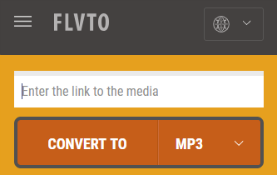Zippyshare is Blocked for UK Visitors, But Why?
vendredi 15 mars 2019 à 10:10 Founded in 2006, Zippyshare has gathered an impressive userbase over the years.
Founded in 2006, Zippyshare has gathered an impressive userbase over the years.
While early competitors such as Rapidshare, Hotfile, and Megaupload, are now long gone, the free file-hosting service continued to thrive.
The site currently has millions of visitors per day from all over the world. There are also significant numbers hailing from the UK, where it is one of the most-used download portals not currently blocked by a High Court order.
However, starting a few days ago, UK visitors are no longer able to access the site. Instead of the usual download page, they are welcomed by a “403 forbidden” error message in their browsers. This remains the case today.

The site serves as a popular hosting location for both third-party ‘linking’ sites and individual users. Some people have used it for over a decade, but that recently came to an abrupt end. For now at least.
This mysterious blockade led to numerous complaints and unanswered questions all over the Internet.

Even several anti-piracy outfits were puzzled by the issue. VideoLock and Digital Copyright both mentioned the issue on Twitter. The latter initially suspected an ISP block, it seems, which would be a surprise as Zippyshare has always been extremely cooperative.

Since court-ordered site blockades are fairly common, several people reached the conclusion that Zippyshare had become the latest target. This suspicion even made it into the Wikipedia entry, although it was deleted soon after, probably for good reason.
It is true that some UK ISPs may block Zippyshare under their parental control filters, but court-ordered blockades don’t result in “403” errors. And since users of UK based VPN IP-addresses see the same error message, there’s clearly something else going on. But what?
The error message in question suggests that Zippyshare is blocking UK visitors. This could be intentional or due to some misconfiguration. To find out more, TorrentFreak reached out to Zippyshare at the beginning of this week but, thus far, we haven’t heard back.
This leaves us with little other option than to speculate. One possibility is that Zippyshare took this step after some kind of legal pressure. It wouldn’t be the first time that a website does this. Two years ago, several stream-rippers also blocked UK traffic, presumably over legal concerns.
Without jumping to too many conclusions, it is evident that Zippyshare has been under quite a bit pressure. A few months ago the RIAA reported it as a notorious pirate site to the US Trade Representative, which already called out the site in the past.
Without an official explanation from Zippyshare, we can only guess what the real reason for the UK visitor blockade is. In any case, no matter who’s initiating the blockade, there’s always a way around it. UK visitors can still access the site from a non-UK VPN server.
Source: TF, for the latest info on copyright, file-sharing, torrent sites and more. We also have VPN reviews, discounts, offers and coupons.

 YouTube downloaders, often called stream rippers, are seen as the largest piracy threat to the music industry. As such, record labels are doing their best to shut them down.
YouTube downloaders, often called stream rippers, are seen as the largest piracy threat to the music industry. As such, record labels are doing their best to shut them down.
